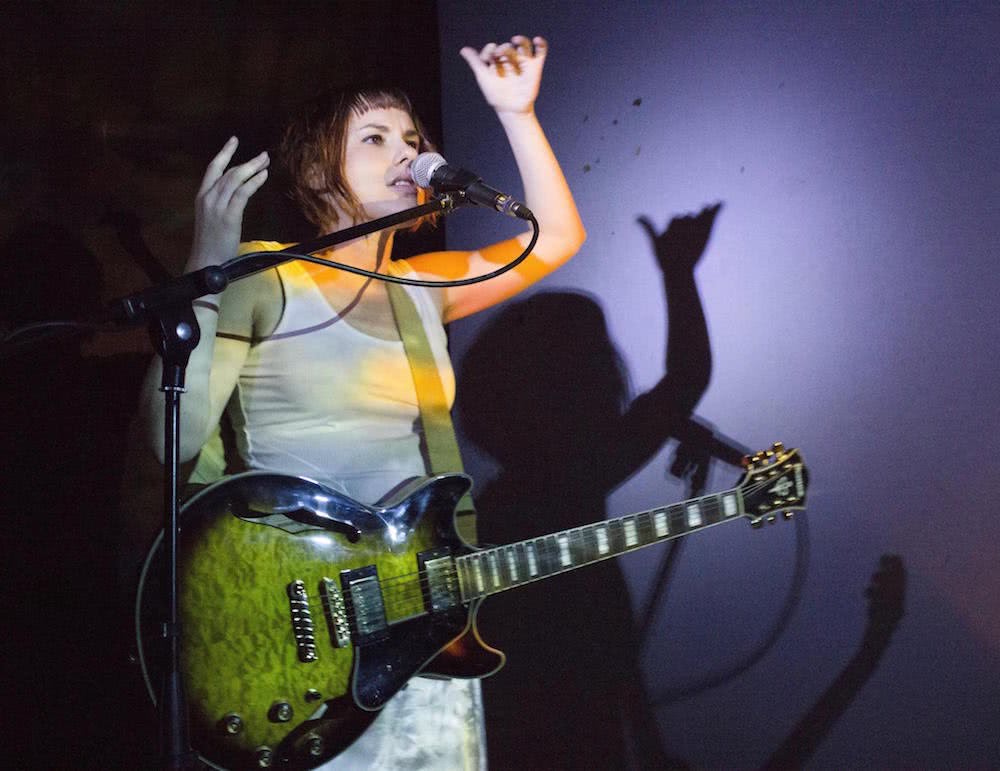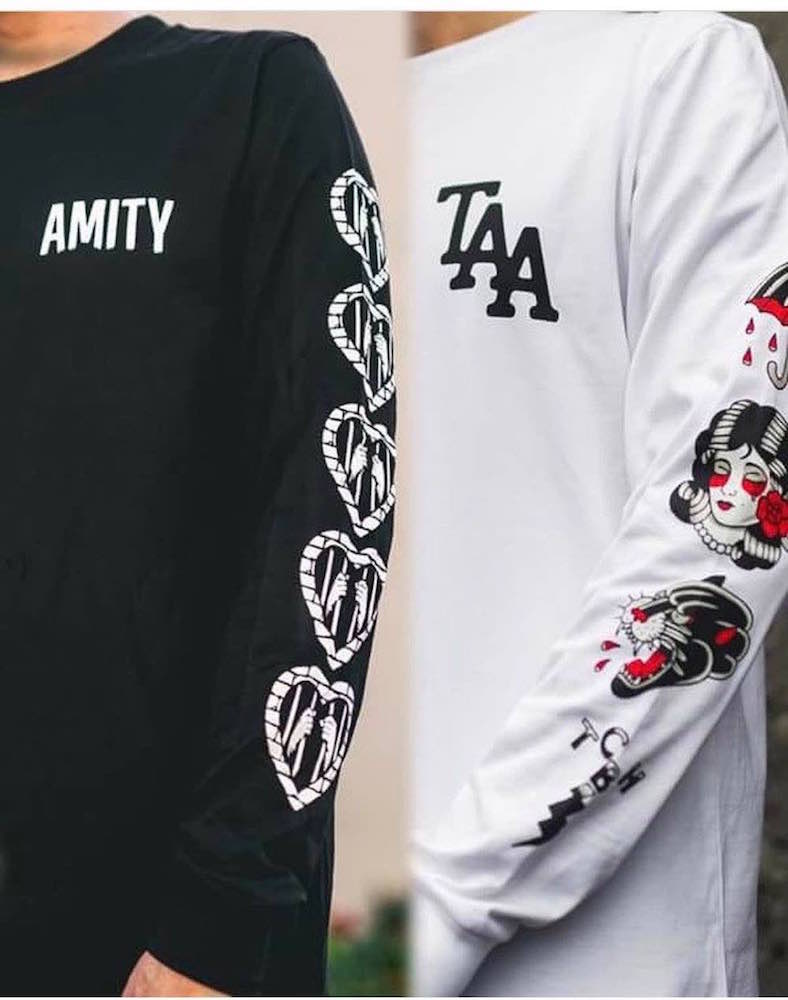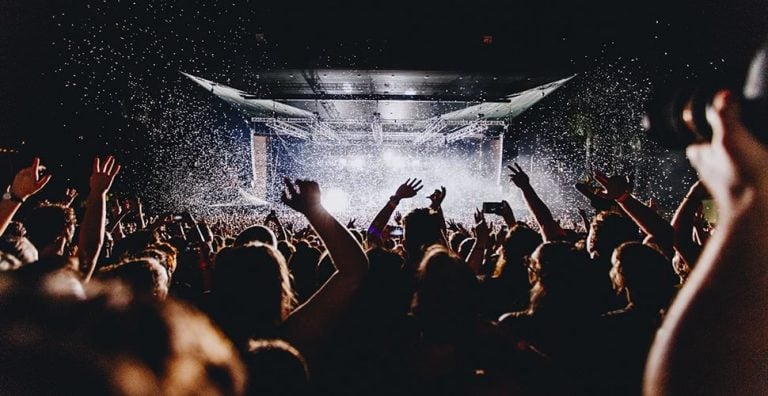Artists need to be strategic about where they place their efforts and how they promote their art. In the past, personal relationships with promoters and venue bookers were of primary importance; Fan engagement came after these relationships were established.
Now, an artist can kick off a career within moments online, release a single with the click of a button, and build a meaningful relationship with hundreds of thousands of people from their bedroom.
But how do you maximise that relationship when it’s time to head out on the road? And how do you ensure you’re not burning a hole in the shared band account and actually making a profit?
From making money from your setlists to converting data into music sales, to eating for free whilst on tour, we’ve put together a list of seven ways to maximise your live show.
Keep your setlists. You can trade them for money
If you perform your music in public, the law entitles you to remuneration. In fact, as soon as you hit that first note, you’re actually earning royalties through your performing rights association, and monetising your business.
Let APRA AMCOS know when, where and what you’ve performed. You only need to submit one Performance Report per band, per show.
Alice Springs singer-songwriter, BB Sabina is a vocal advocate for ‘adulting’ around tax time:
Love Music?
Get your daily dose of metal, rock, indie, pop, and everything else in between.

“A couple of years ago, as an emerging artist, learning about the industry and taking up every opportunity to play, I was pleasantly surprised by the income I received through live performance royalties,” she said. “From festivals to gigs, to open mic nights – submitting performance reports is now part of my practice.”
Get social
Music will always be the most important factor in any career, but social data is becoming more and more important for artists to connect with fans when they’re on and off the road.
A follower on social media can be invaluable; they can help you gauge interest for your next project or live show; they can help you sense-check your art if you’d like to involve them and; they can even help you map out your tour dates by tapping into a platform’s insights, like Spotify for Artists or Twitter Analytics.
To really tap in to this often untouched resource, you can grow your social following by including signage at your shows, including your social handles on selected merch (like stickers for example), and even asking each audience to give you a follow while onstage.
Data is your friend
There’s no doubt about it, we live in a data-driven society and it’s informing our future reality. Live shows offer a highly unique opportunity for artists: what if you could understand which fans bought their tickets at the pre-sale and which purchased tickets at the door?
What about which fans have your record via the ticket + LP bundle? Or which fans arrived in time to see the support act, and which didn’t?
This kind of data is all available and some ticketing agencies, like Eventbrite, are offering it to artists as soon as the show is over.
If you’re looking to beef up your mailing list (which you should constantly be) then take down willing fans’ emails at the door. If you already have a mailing list where you can connect with your fans, that’s great; as long as you’re doing something with the data you collect.
There are many, many ways you can leverage the data you receive from fans, but below is our Top 5:
1) A newsletter
Email is nearly 40 times better than Facebook and Twitter at acquiring customers (source: McKinsey iConsumer Survey) a.k.a. fans who can support your career by purchasing your merch, show tickets, or releases.
2) Maintain direct communication
Email updates on your career and any suitable announcements are a valuable way to stay connected to your audience.
3) Exclusive offers
If a fan is going to the trouble of opening your newsletters and engaging with your music then they are worth their weight in gold. Nurture the relationship with exclusive merch or pre-sale offers, competitions for meet and greets, or even discounted bundles.
4) New projects
Looking to switch things up musically, launch a campaign for a charity you care about, break a world record, or release your album in a unique way? Why not ask your fans for their input or help? Not only will have built a groundswell before it’s even off the ground, you’ll have a horde of fans who are personally invested in the roll out.
The merch gold rush
Merchandise accounts for a large portion of concert tour income, it’s quite often the lion’s share. While production costs for t-shirts, wristbands, pins, hoodies, vinyl and yes, even CDs, may be an upfront expense, if you price and position it correctly, you should eclipse your costs by the tour’s end.
In an interview with Bandwidth, NY artist Gabrielle Smith (Eskimeaux, Frankie Cosmos, Bellows and Told Slant) said:
“We went on one tour where we only had CDs and then the CDs sold out really quickly. Then on [our most recent] tour we had T-shirts, vinyl and CDs — and we bought way too many CDs and not enough shirts at all. We ran out of shirts after four days of being on tour.”

You might be paying too much for your accommodation
Firstly, check in with your accommodation to see how many band members can stay in one room. If your bandmates are happy with a mattress and a piece of floor, then embrace tour life and save hundreds.
Touring regionally? Rent a van that doubles as accommodation. Your wallet will love you, your mild scoliosis not so much.
Also keep in mind the service that launched in 2016 to connect our music community together and allow people to share their gear and professional skills, Everywhere Roadie.
Everywhere Roadie has partnered with multiple accommodation providers to offer discounts to members. Some providers, like the YHA in Adelaide, are offering a 20% discount or a free room in exchange for an acoustic performance for hostel guests.
Get smart about food
Some music venues provide a meal when they book bands. It goes a long way to making artists feel at home and want to return to their venue. Figure out what your venue can offer as early in the agreement as possible.
Regardless of whether your venue has your food covered, download the FEED MUSIC App which gives touring musicians access to free food at participating cafes and restaurants while they’re on tour.
Created by Pixie Weyand, who owns Fortitude Valley’s Lost Boys cafe and iconic venue The Zoo, FEED MUSIC is a not-for-profit service allows artists to create their own profile on the app to help cafes and restaurants when claiming food while on tour.
The catch? Artists need to be touring and be verified to access the free food. Find out more here.

Gain clear communication on your payment
Running a safe a successful business should be a priority for all bands. That’s why you’ll need a performance agreement with every venue you play at.
A performance agreement is a basic contract which tells you what you and the venue will provide for the performance. It’s important to have one in case a disagreement occurs and it should always include the form of payment.
The three most common forms of payment are:
- A guarantee: the venue agrees to pay an agreed fee for the show in advance. This is the most common type of payment deal in live music.
2. A door deal: the venue pays the artist a percentage of ticket sales for the show.
3. A versus deal: the venue pays a guaranteed fee to the artist plus a percentage of the door takings once a certain amount has been reached.
Whichever payment you choose, it should be locked in prior to your arrival at the venue.
Consider booking secondary gigs in each location
Planning a tour takes time, with a four-month lead usually recommended after the shows are booked. The good news though? This gives you time to map out a schedule and consider any additional shows at each location.
The best place to start is with platforms like the Live Music Office’s Live Music Map, which shows you venues, radio stations, gear hire companies, rehearsal spaces and more; Sofar Sounds, a global community which allows for intimate secret concerts; and Parlour Gigs and Six8, which both allow fans to book live shows in unique locations – like their living rooms.
You’ll also need to think about how best to promote these shows. Reach out to local community radio to see if you can do interviews to plug the show, invest in digital marketing on social media (Facebook Blueprint is one place to start), and make sure any local media has included your shows in their gig listings.

































